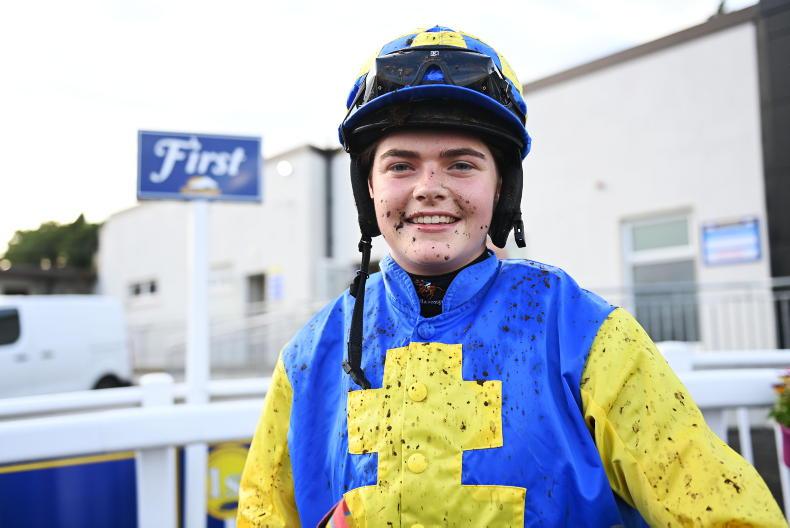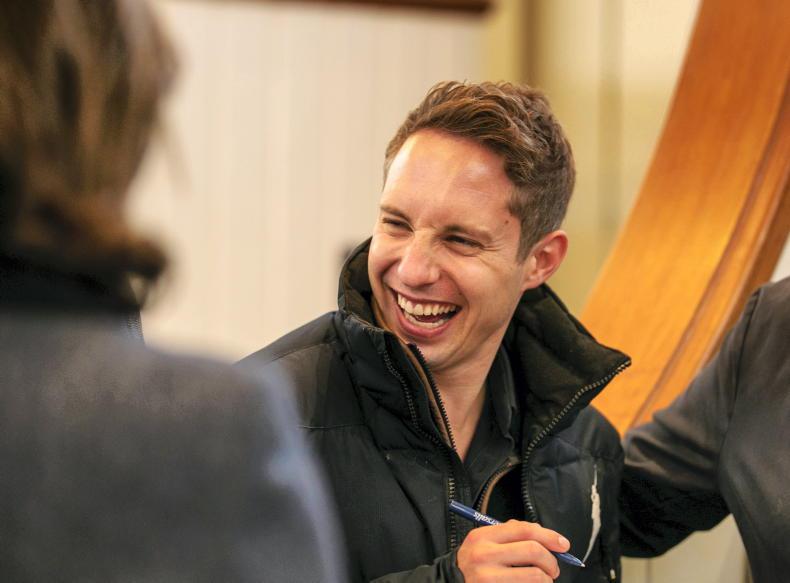IN a newspaper interview 15 or 16 years ago, a journalist asked me about my long term goal in racing. I didn’t hesitate in telling him my greatest ambition was to still hold a trainer’s licence when I was 50 or 60.
Back then that seemed a realistic possibility, but the way the sport has changed in the past decade, I now see it as a far greater challenge. The gap between the smaller trainer and those at the very top has become wider and in my opinion the powers that be have failed to address the situation.
I have been involved in racing all my life, starting out at just 14 years old, having found that school held little or no interest for me. I grew up in Co Cavan, where my family owned a farm before later moving into the pub business. My father always held an interest in horses and arranged for me to go and work for trainer Tony Keane down in Tipperary.
I remember travelling down on a cold, wet winter afternoon in December, my dad taking me as far as Naas where I then got a lift from stable jockey, Micky Moran. I stayed in digs with Tony’s mother who was over 80 at the time.
Before arriving in the yard I had never even sat on a racehorse but quickly got the hang of things. My first week’s wages were £20 - I couldn’t believe I was actually getting paid just to ride horses!
WINNING DEBUT
Having had three or four rides on the flat I switched to National Hunt as my weight became a problem. I won on my very first ride over jumps, with Frozen George in the Garryowen Hurdle at Limerick.
Trained by Tony [Keane], the win was extra special as my dad owned the horse. Still only 16, I left Tipperary and headed over to England where I spent a month working for Rod Simpson in Lambourn. I then returned home and spent a year and a half with Jim Bolger, riding Megabucks to win a hurdle race for the boss.
Better equipped to face life in Britain after my time in Coolcullen, I went over to John Edwards at 18, at a time when he had one of the strongest jumping yards in the sport. He had over 100 horses in training including Gold Cup second Yahoo and leading chasers Dixon House and Pearlyman.
After a year with Mr Edwards, I moved on to work for Ms Wonnacott and later Chris Popham in Somerset. My close friend Mick Fitzgerald was going out with Paul Nicholls’ sister-in-law at the time and, after meeting the trainer, I was offered a job as stable conditional jockey. I rode a winner, Well Known Character, early on in my time with Paul. His training career was starting to take off and he asked would I be interested in becoming head lad.
So at 22, I retired from race riding and spent the next 12 months working for the future champion trainer. We enjoyed plenty of success together and I still count him as a good friend today.
At 23, I came back to Ireland to set up on my own. I had saved some money during my time in England. Aside from race riding and working for Paul, I was buying and selling a few horses.
I bought 25 acres at home in Cavan and started training a couple of point-to-pointers. With the aid of a LEADER grant, I was able to build a proper gallop and put in a swimming pool as well as 40 boxes.
In 1995, I took out my trainer’s licence and Southern Rule, ridden by Joanna Morgan, became my first winner later that same season. For a time everything went really well. I built my string up to 45 horses, trained a few winners each season and started a young family.
HARD TIMES
However, once the recession came it hit us all very hard, particularly in my part of the country, where the collapse of the Quinn empire left hundreds unemployed. It was next to impossible to sell a nice horse or keep owners involved in the sport, so I had to downsize and find a different way to make a living.
I went back to producing young point-to-point horses and trained six or seven racehorses for the track. I was fortunate that my friend Mick Fitzgerald employed me to buy horses for his racing club. Mick also helped me set up The Dylan Partnership, which are a group of English-based businessmen who invest in seven three-year-old stores each year.
To date the syndicate has been very successful. If the horse has a Dylan in its name, it has probably started its career in Fairtown, Cavan. Hong Kong-based trainer Andreas Schultz gave me a job buying yearlings, breaking and prepping them before sending them over. All of that kept the wolf from the door and I am fully aware that I have been more fortunate than many of my colleagues.
In recent seasons, I have trained young horses such as Charlie Bear and Chewy Round Town to win their maidens before selling them on. A decade or so ago, I would have fought tooth and nail to keep such horses in my yard but now as soon as one wins a race you are looking for a buyer. It’s all about survival and hoping to get your 10% of the sale and reinvest in another prospective star.
In racing, the highs are real highs and when you are losing you find yourself in a very bad place. I have enjoyed some great days over the years and, although few in number, they will always outweigh the bad times. A four-timer at Musselburgh in November 2005 and Cregg House’s win in the Topham Chase the same year were definite highlights but one win in particular stands out.
I trained Shantarini to win the GPT Handicap at the 1998 Galway Festival for my dad - a man who liked to have a decent punt. He had a good bet on the horse that afternoon and less than 12 months later he passed away. I was delighted we got to share that success together.
STATE OF RACING
I am very lucky to have some great friends in racing but in recent years I find many of us have become despondent with the state of the sport we love. Nowadays when I go racing I stay down in the stable yard or leave right after my horse runs. Lads no longer stick around to have a pint or the craic - the social side of the game is all but dead.
Trainers are struggling to make a living and it is all they can do to just put diesel in their lorry to travel to the races. In both flat and National Hunt racing, the big four or five trainers are moving further and further ahead of the pack and we are in danger of losing more and more small to medium sized handlers.
Those who govern the industry need to sit down and see what can be done before it’s too late. Perhaps we could have races restricted to trainers who have only had a certain number of winners, or handlers who only have a designated number of horses in training. I’m sure a think-tank would come up with better ideas but it needs to be done, soon.
It also saddens me at how badly owners are treated in this country. I’d actually go so far as to say it actually embarrasses me. If I bring an English owner to the races over here, they, or some of their extended group, may have to pay in just to see their own horse run. Even if they get free entry on the day, that’s as good as it gets.
In the UK, owners are sent a letter welcoming them to the track, given additional free passes and dinner at the racecourse. Without the owners we would not have a product to sell and I feel they are treated as second-class citizens in this country.
Despite my gripes about the current state of Irish racing, I have no intention of joining the exodus from the training ranks. I speak out only because I am passionate about the sport and the people involved. I will continue to seek out a living day by day because in truth, racing is all I have ever known. I couldn’t imagine myself working in any other industry and I suppose, when it comes down to it, I wouldn’t want to.
Two decades on from that original interview my goal remains the same; life hasn’t become any easier but I am still fighting.
Shane Donohoe was in conversation with John O’Riordan


 This is a subscriber-only article
This is a subscriber-only article
 It looks like you're browsing in private mode
It looks like you're browsing in private mode











SHARING OPTIONS: